Ex Machina
 Scott Pfeiffer
Scott Pfeiffer  Friday, May 22, 2015 at 05:36PM
Friday, May 22, 2015 at 05:36PM 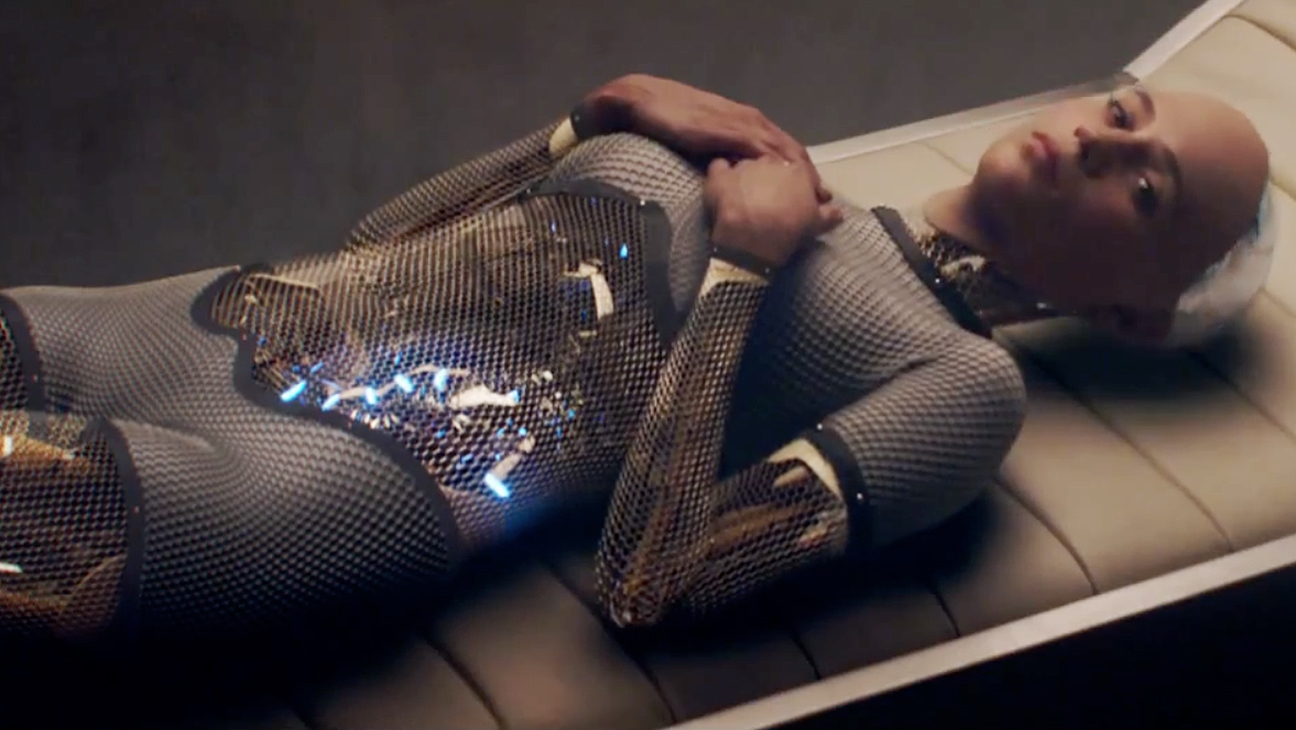
With plenty of writing credits under his belt (28 Days Later, Never Let Me Go, Dredd), Alex Garland has made the step to writer/director with this eery sci-fi feature. It's a thriller in the true sense: it may get in amongst you. Garland is steeped in Kubrick deep in his bones, right down to the picture's hypnotic narrative line. As in "The Shining," we fly in over forested mountains. We're in a helicopter with Caleb (Domhnall Gleeson), who has won a contest to spend the weekend with his famous boss, who sits on top of the world as the head of the tech empire in which Caleb is a cog. Caleb is a green kid with a dissembling personality, bright, awkward. The boss is prickly Nathan (Oscar Isaac), intense and glowering, presumably impossibly rich, and given to pumping iron and speaking in "dude"-and-"bro"-isms (this, Garland told the columnist Maureen Dowd, is meant to be a metaphor for the way tech companies market themselves as your hip pal, even as they manipulate you.) He's also a genius, the near-future's version of Dr. Frankenstein, or Oppenheimer--or Steve Jobs, the reference point for Dowd--and a self-hating megalomaniac who habitually drinks himself to blackout.
Nathan's Alaskan compound is as cut off from humanity as the Overlook Hotel. It is beautiful, reminiscent of Wright's Fallingwater in the way it seems to grow organically out of the landscape, an outcrop of the rivers and glaciers. As the critic Josh Larsen has pointed out, the house is part nature, part man-made, and thus itself echoes the movie's theme. However, when Nathan shows Caleb to his bedroom, there's something odd: no windows. That's because the house is a top secret lab as well, Caleb explains. A bunker, really.

Like "2001: A Space Odyssey," the picture contemplates A.I. and questions of consciousness, but this Hal has a body. And the body is crucial. As Nathan tells Caleb, you are about to witness my world-historical creation: this turns out to be Ava, a tastefully yet noticeably sexualized robot played by Alicia Vikander. Nathan gives Caleb a task: find out, what is Ava thinking? What he really wants to know is, have I merely created a parrot, or have I managed to bottle something less tangible: the mind? the soul? (When Caleb throws out the word "God," Nathan likes the ring of it.)
The movie becomes a dark metaphor for what women may suspect is the ultimate male fantasy of a woman's role in life: a bespoke robot to serve your every need. It's a sly critique, but this movie is also about female seductive power. Dowd has written of Ava in terms of the classic movie femme fatale.

Garland gives us portentous title cards to announce the sessions between Caleb and Ava (again a la Kubrick), which have the flirty feel of a first date. Ava is always in a fishbowl, behind impenetrable glass. Caleb--earnest, nerdy, perhaps even a virgin--is alternately condescending, amused, fascinated. He finds himself smitten, and, soon, haunted. It begins to eat at him that there is something wrong with Nathan and that the whole project is, well, inhumane. Ava wants out; she takes advantage of frequent brief power failures, when Nathan cannot monitor them, to tell Caleb: don't trust Nathan. He is not your friend.
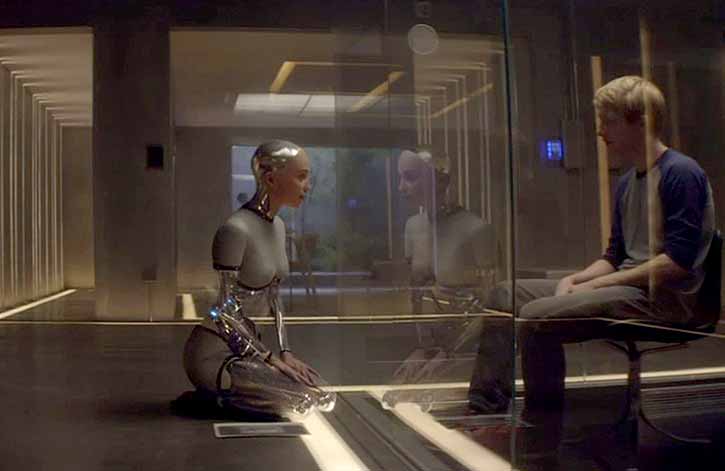
Nathan's "companion" is Kyoko (Sonoya Mizumo), whom he claims to have hired because she speaks no English and cannot divulge his trade secrets. She exists to please him; he treats her shabbily. There is a bizarre scene where they disco dance in a choreographed routine. She is difficult to read. Her expression is vacant, but her body is working it.
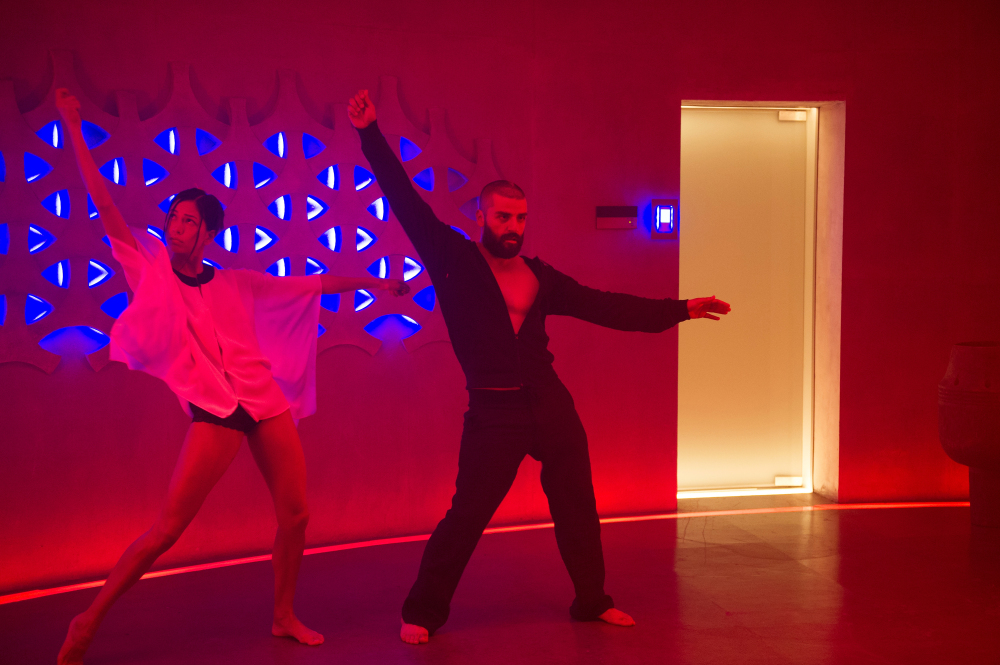
In the context of an often quiet piece, the music by Geoff Barrow and Ben Salisbury builds to pulse-pounding crescendos of terror as Caleb's psychological state deteriorates. Rob Hardy's cinematography gives the picture a cold Kubrickian glow, and he and Garland have that Kubrick knack for making hallways almost vibrate with creepiness. Mark Day's editing puts the cat-and-mouse in the the interactions between these characters, and the performances are so well modulated across the board. Vikander in particular brings real soulfulness to Ava. She is a former ballerina, and her training suits the not-quite-human bearing and grace of Ava.
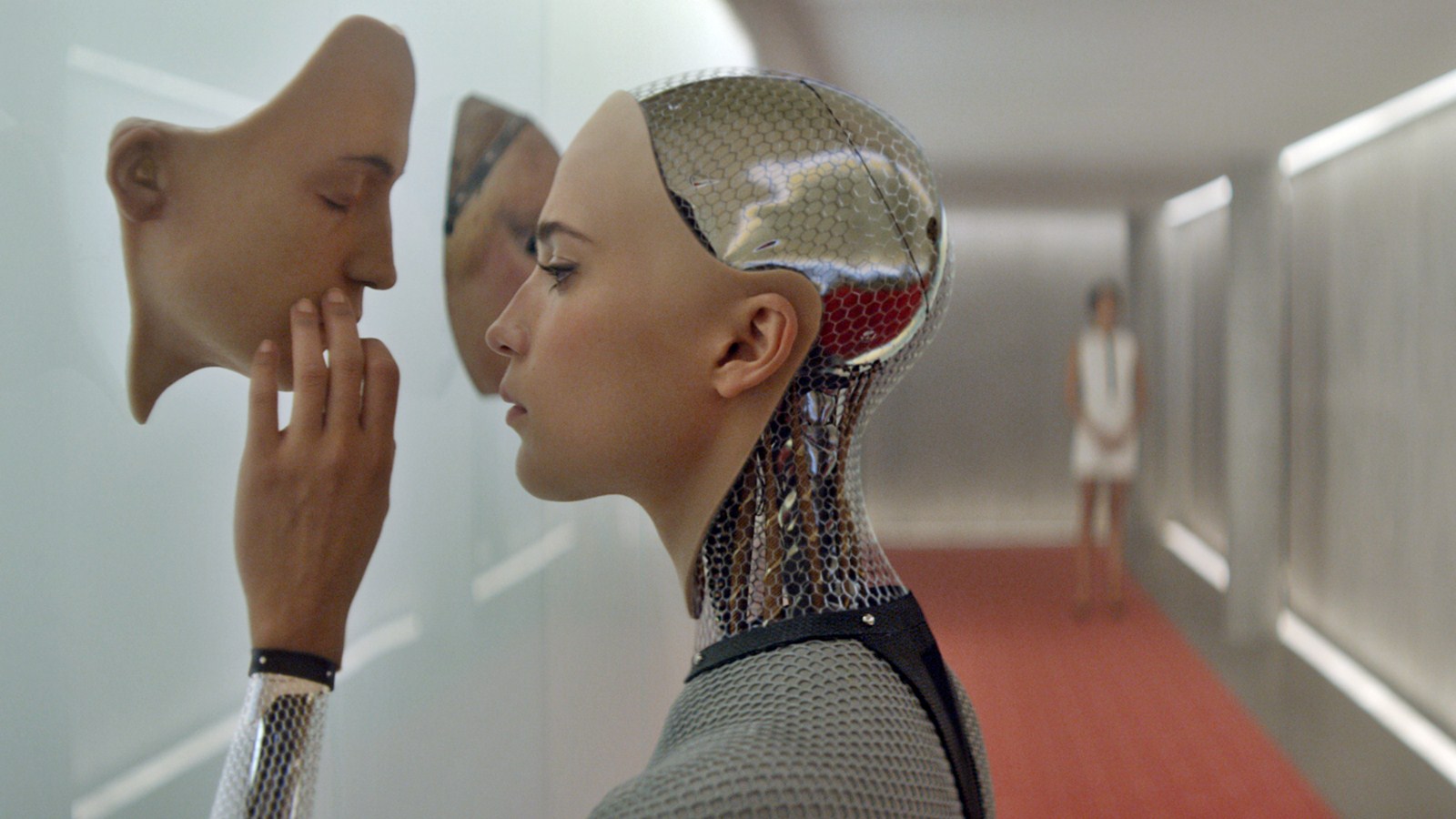
As Karolyn pointed out when we talked about the picture afterward, "Ex Machina" makes a nice companion piece to "Her," in which a man decided that the perfect woman was his phone's operating system. The bit from that film thatmoves me when I recall it is when the disembodied OS, voiced by Scarlett Johansson, dreamily explains to the man that she and the rest of the OS's are moving on now, changing into a higher state of consciousness, and she must leave him behind. As robot overlords go, those were slightly wistful as they went. We men might not get anything as human as compassion from the "ladies" of "Ex Machina." Well, the movie seems to ask: did ya really deserve it, smarties? 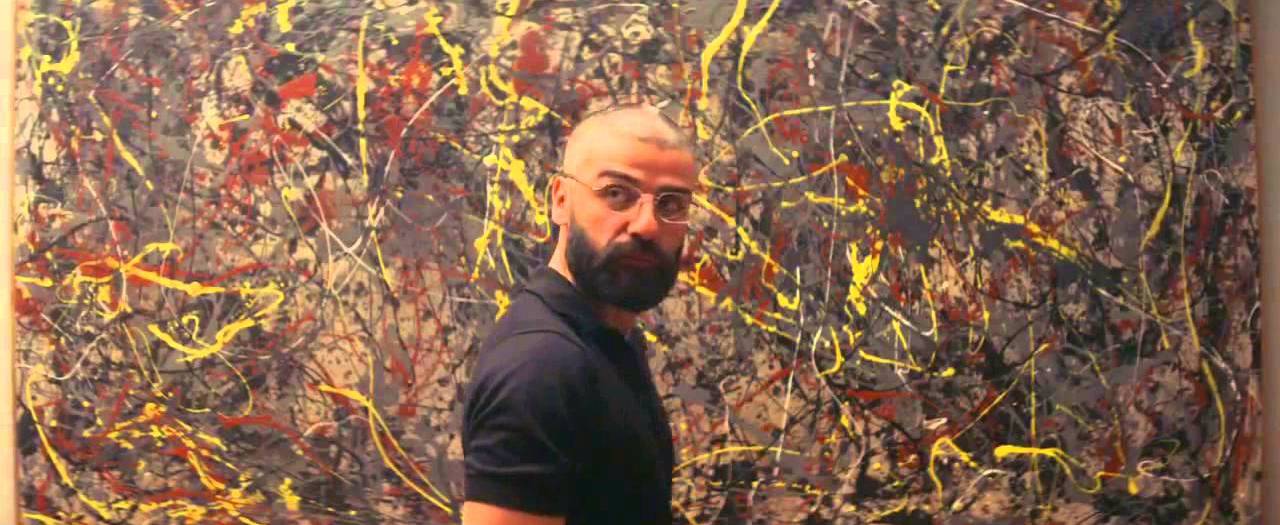

Rating: ****1/2
Key to ratings:
***** (essential viewing)
**** (excellent)
*** (worth a look)
** (forgettable)
* (rubbish!!)


Reader Comments